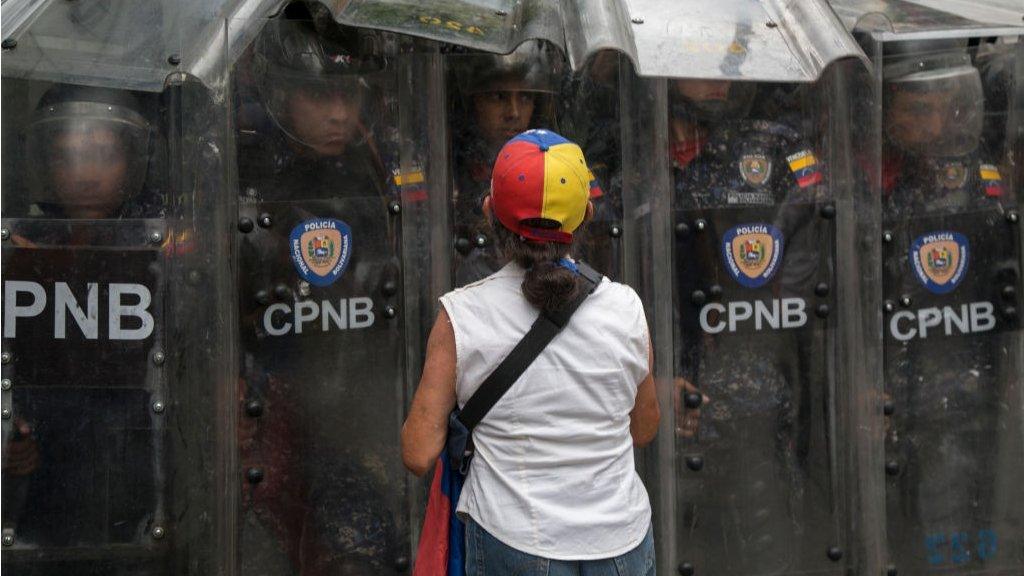Venezuela 'drone attack': Six arrests made
- Published
Footage showed dozens of soldiers running away before the transmission was cut off
Six people have been arrested in Venezuela for involvement in an apparent assassination attempt on President Nicolás Maduro, the interior minister says.
Néstor Reverol said they were part of a group that loaded two drones with explosives and set them off during a military parade in the capital Caracas.
Mr Maduro has warned the perpetrators face "maximum punishment".
He has blamed Colombia for the incident but provided no evidence.
Colombia said the accusation was "baseless".
The government has also pointed the finger at the opposition, prompting fears of a new crackdown.
Many opposition leaders have already left the country citing government harassment and there are reported to be more than 200 political prisoners in the country's jails.
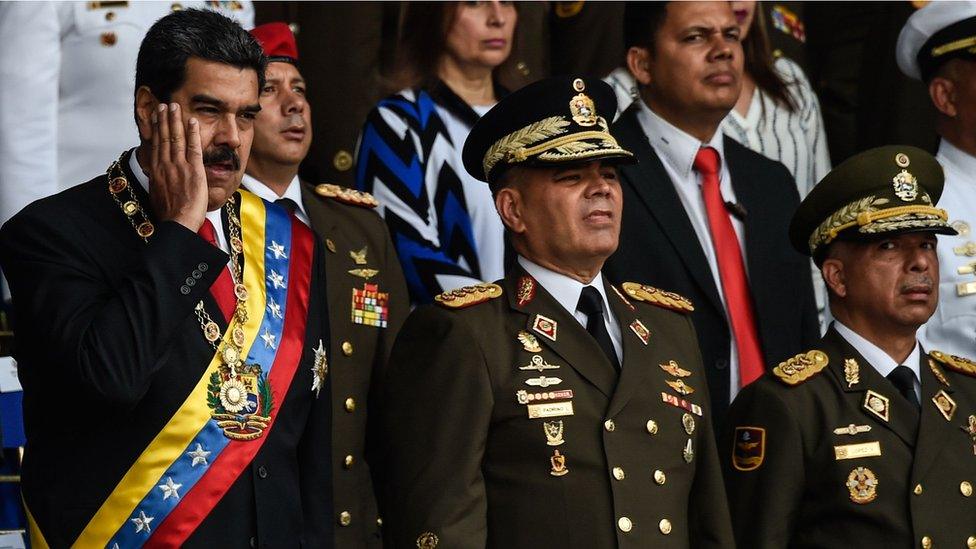
Mr Maduro was speaking at a military ceremony when the incident happened
Meanwhile Defence Minister Vladimir Padrino Lopez declared his unconditional loyalty to the president on national TV.
"We are determined, determined to defend our homeland, our constitution, our democracy, our institutions," he said.
Correspondents say Mr Maduro has relied heavily on the armed forces to keep power in the midst of an economic crisis and political turmoil.
What is known about the alleged attack?
The incident happened when Mr Maduro was speaking at an event to mark the anniversary of the national guard.
A bang is heard and footage of his speech shows the president suddenly looking upwards and dozens of soldiers running away.
Two drones loaded with explosives went off near the president's stand, Communications Minister Jorge Rodriguez said.
Seven soldiers were injured, the Venezuelan authorities said.
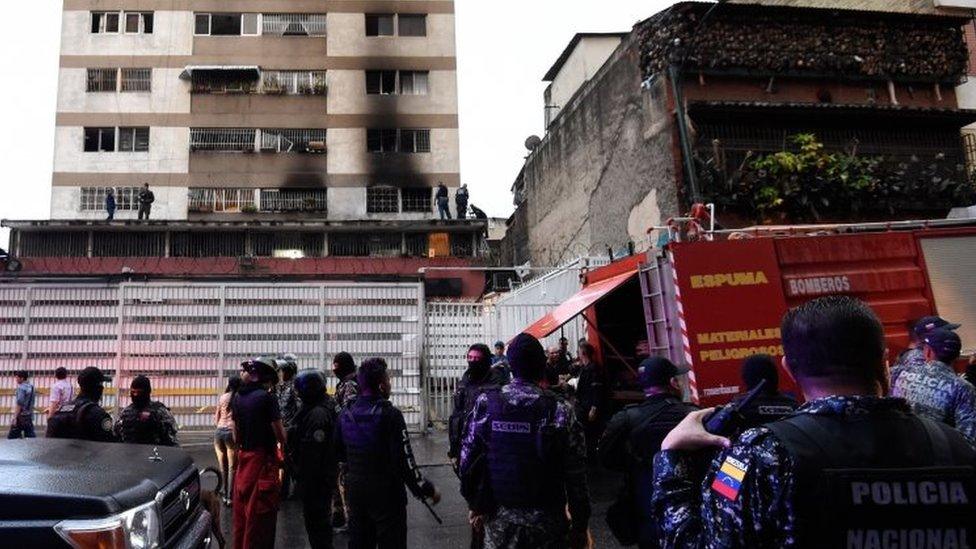
Charred windows were seen near the place where President Maduro was speaking
Later Mr Maduro said the incident had strengthened his resolve.
"I am fine, I am alive, and after this attack I'm more determined than ever to follow the path of the revolution," he said.
"Justice! Maximum punishment! And there will be no forgiveness."
Interior Minister Reverol said six "terrorists and hired killers" had been arrested, several vehicles seized and hotels raided.
Who could be behind this?
Mr Maduro accused neighbouring Colombia and elements within the US of instigating "a right-wing plot" to kill him.
The Colombian government has denied any involvement, saying there is "no basis" to Mr Maduro's allegations.
US National Security Adviser John Bolton denied any US involvement in the incident, adding that it could be "a pretext set up by the regime itself".
Mr Rodriguez accused Venezuela's right-wing opposition of carrying out the attack.
"After losing the vote, they failed again," Mr Rodriguez said.
He was referring to May's presidential elections, where Mr Maduro was re-elected for another six-year term.
However, Hasler Iglesias, a youth leader with the opposition Voluntad Popular Party, told the BBC: "It's hard to believe that the opposition is going to make an attempt when they have never made an attempt in this way in 20 years."
Meanwhile, a little-known group called Soldiers in T-shirts said on social media that it was behind the alleged attack.
The claim was not backed up by any evidence, and the group did not respond to media requests for comment.
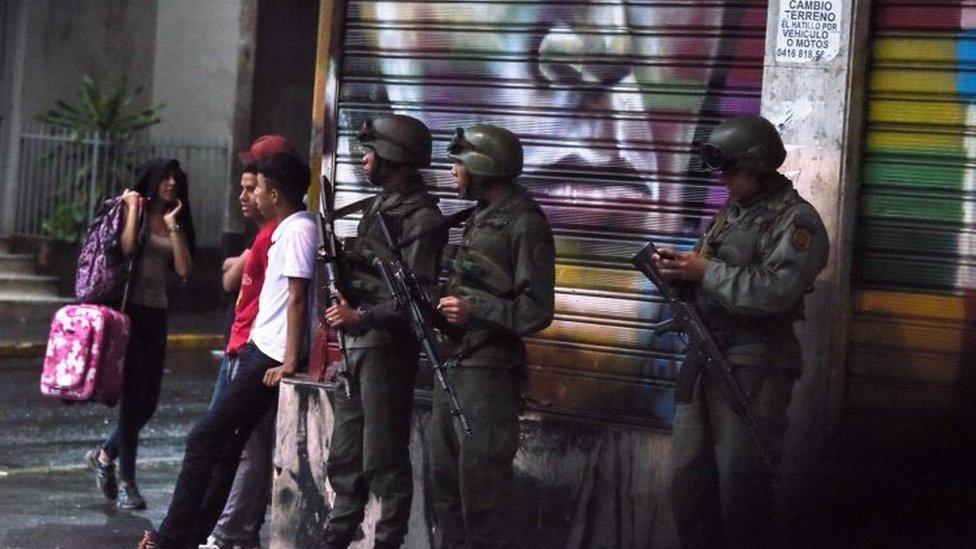
Soldiers sealed off the area after the alleged attack
To add further to the confusion, firefighters at the scene disputed the government's version of events, the Associated Press reports.
Speaking on condition of anonymity, three of them said the incident was actually a gas tank explosion inside an apartment, but did not provide further details, the news agency says.
Who is President Maduro?
Mr Maduro has managed to split opinion almost as much as his predecessor in office, Hugo Chávez.
Since assuming office in 2013, Mr Maduro's administration has drawn widespread condemnation from a string of nations worldwide for undermining democracy and violating human rights in his country.
His opponents paint him as a ruthless despot who detains his political rivals on overly harsh charges pressed by a judiciary under his party's control, while his followers say he is protecting the country from another coup.
His re-election in May came amid a deep economic crisis which has been driving hundreds of thousands of Venezuelans from the oil-rich country.
However, there is still a loyal core of people who support Mr Maduro and his United Socialist Party (PSUV), saying Venezuela's problems are caused not by the government but by forces such as the US.
- Published5 August 2018
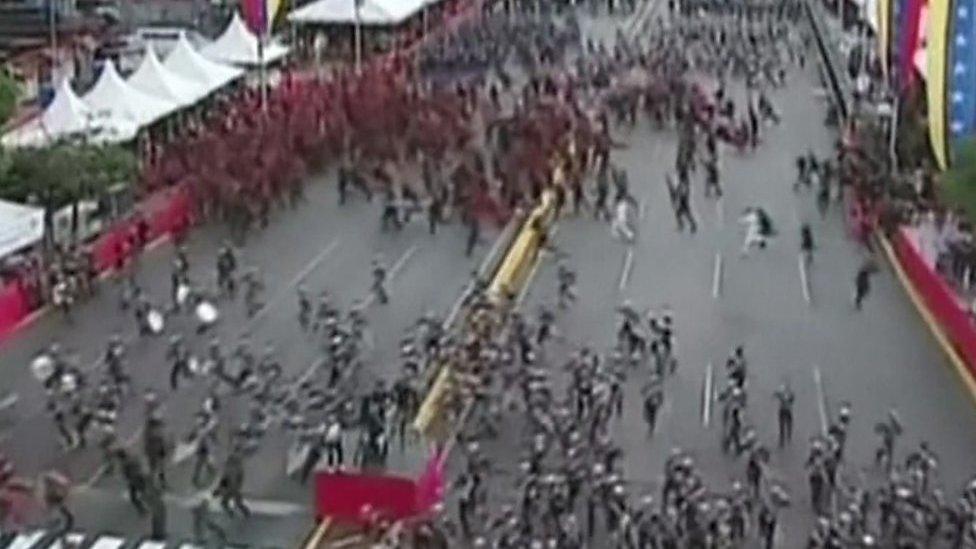
- Published28 January 2019
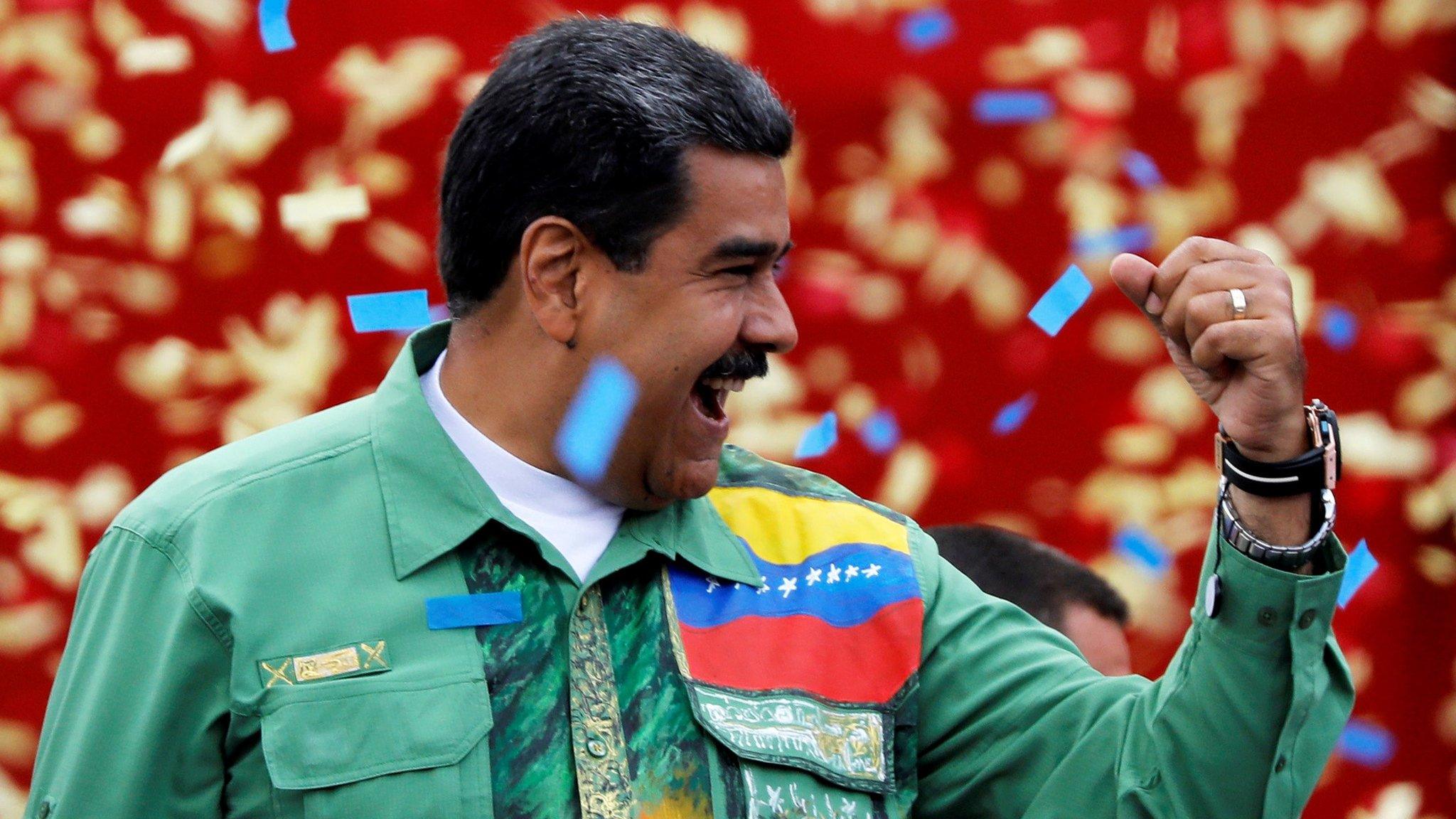
- Published12 August 2021
